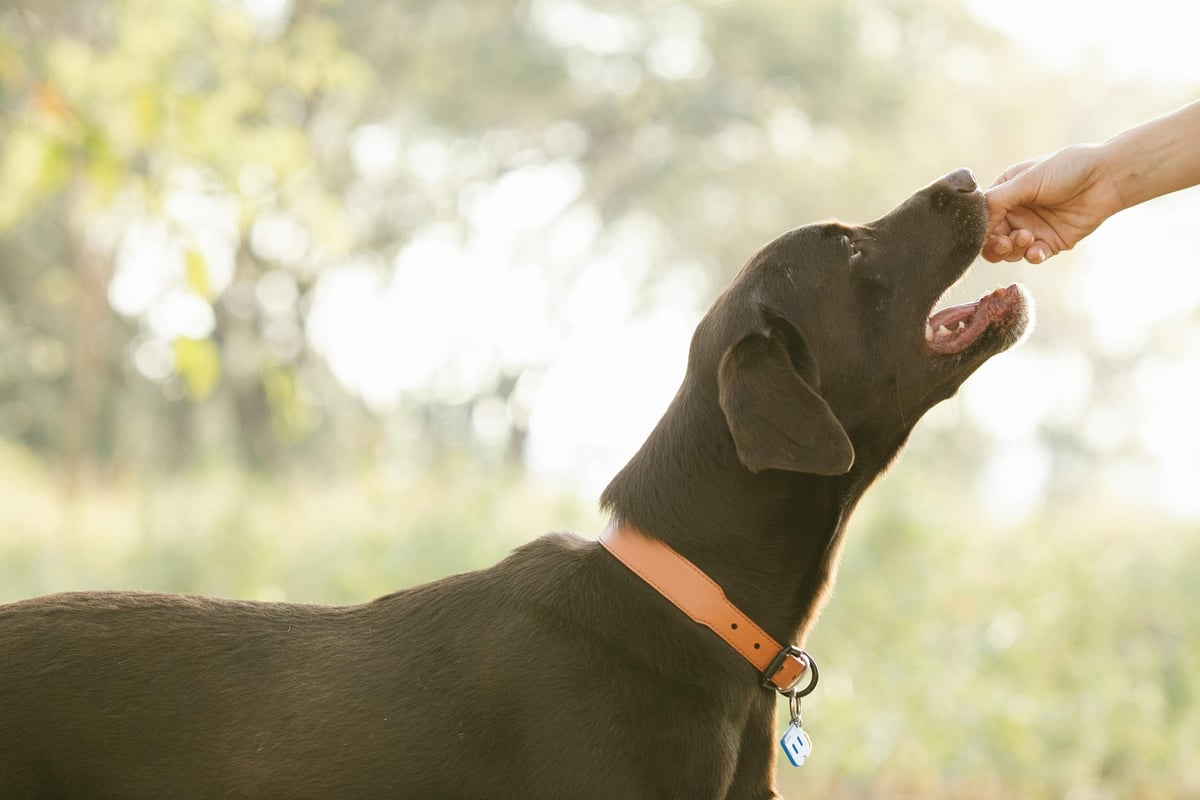Health writer Did you know with an ad-lite subscription to NorthernIrelandWorld, you get 70% fewer ads while viewing the news that matters to you. The Easter bank holiday weekend is finally here, with many households across the UK preparing for an Easter egg hunt this Sunday (April 20). Many homes will have more chocolate than usual within reach.
Whilst, chocolate is a favourite treat for humans, it can be lethal for our pets as chocolate is poisonous to our dogs. Advertisement Advertisement Animal Friends ’ partner vet, Dr Samantha Webster, Director of Clinical Operations at Joii Pet Care, outlines the different types of chocolate, how harmful they can be to our pets and the warning signs and symptoms your dog has eaten chocolate. Chocolate is poisonous to dogs because cocoa contains the chemical theobromine, Dogs are unable to break this down, which can have a harmful impact on their health.

Catrin George, Animal Wellbeing Specialist at Animal Friends explains: “Whilst all chocolate contains theobromine, the impact of ingestion depends on both your dog’s breed and weight and also the type and amount of chocolate. “A toxic dose of theobromine could be as low as 20 mg per kg, so it is worth remembering that a small dog could be poisoned by a much smaller amount than a large dog.” Advertisement Advertisement Chocolate is toxic to dogs and can be life-threatening, there are many different types of chocolate, with some poising a higher risk than others if eaten by our four-legged friends.
Dr Webster explains the risks of each type and what you should do if your dog starts to show symptoms of poisoning. White chocolate White chocolate contains no cocoa solids, so does contain less amounts of theobromine, but that doesn’t mean it is less harmful for your dog. Dr Webster advises: “White chocolate contains the least amount of theobromine of all the chocolate types, approximately 0.
9 mg per 100g. “However, other ingredients in white chocolate could prove fatal for your pup, including cocoa butter, butterfat and milk solids as well as a considerably higher concentration of sugar. “So, don’t be tempted to give your dog a piece of white chocolate as these other ingredients are toxic and could cause illness in your dog.
” Milk chocolate Advertisement Advertisement The most popular type of chocolate, milk chocolate, should also be kept away from your dogs. Dr Webster explains: “ Classic milk chocolate will contain cocoa solids as well as cocoa butter and other ingredients such as milk and sugar. “Whilst these work to water down the toxic theobromine, levels still typically range from 150 to 220 mg per 100g, meaning it still poses a serious threat to your dog and should be avoided at all costs.
” Sign up for our NationalWorld newsletter - delivered daily Dark chocolate With high levels of cocoa, dark chocolate can be lethal to dogs. Dr Webster warns: “Cooking chocolate and dark chocolate contain the largest amounts of cocoa and have extremely high levels of theobromine. “It is thought to range between 450 to a seriously high 1600 mg per 100g.
This makes it extremely dangerous for dogs and possibly fatal, even if only a small portion is consumed.” Advertisement Advertisement Symptoms of chocolate poisoning in dogs can typically develop any time between four and 24 hours after it has been eaten, so it’s important to be aware of the warning signs as soon as they happen. Dr Webster explains that tell-tale signs your dog has eaten lower doses of chocolate can include: If your dog has eaten more chocolate at around 40mg per kg, there is a risk of cardiac symptoms including: If your dog has consumed large quantities of chocolate, they may experience neurological effects such as: Advertisement Advertisement Dr Webster adds: “Larger doses will be increasingly serious, with fatalities having been recorded around 200 mg per kg, or as a result of complications occurring from the other effects.
This means acting fast is important.” If you know your dog has eaten chocolate, you should contact your vet immediately and not wait until signs and symptoms start to appear. If you are unaware that your dog has eaten chocolate but start to notice they are experiencing symptoms of chocolate poisoning contact your vet as soon as possible.
It is important to work out roughly how much chocolate your dog may have consumed, as well as what type of chocolate as this will help the vet understand how to treat your dog. Advertisement Advertisement If you have a pet story to share with us, we’d love to hear from you. You can now send your stories to us online via YourWorld at www.
yourworld.net/submit . It's free to use and, once checked, your story will appear on our website and, space allowing, in our newspapers.
National World encourages reader discussion on our stories. User feedback, insights and back-and-forth exchanges add a rich layer of context to reporting. Please review our Community Guidelines before commenting.
Did you know with an ad-lite subscription to NorthernIrelandWorld, you get 70% fewer ads while viewing the news that matters to you..
Food

What happens if a dog eats an Easter egg? Signs your dog has eaten chocolate and what to do according to a vet

Chocolate can be potentially life-threatening for our pets 🐶














